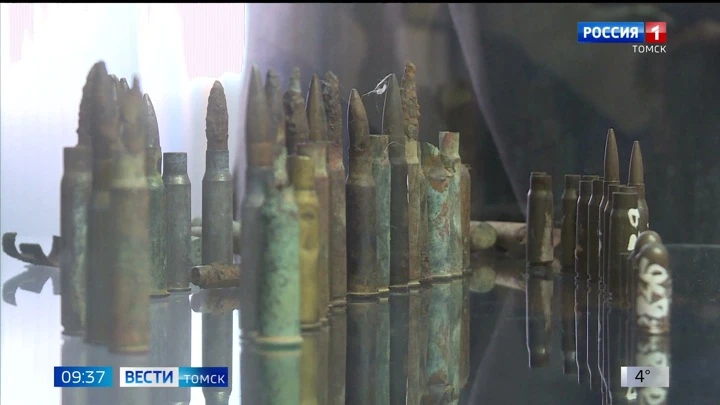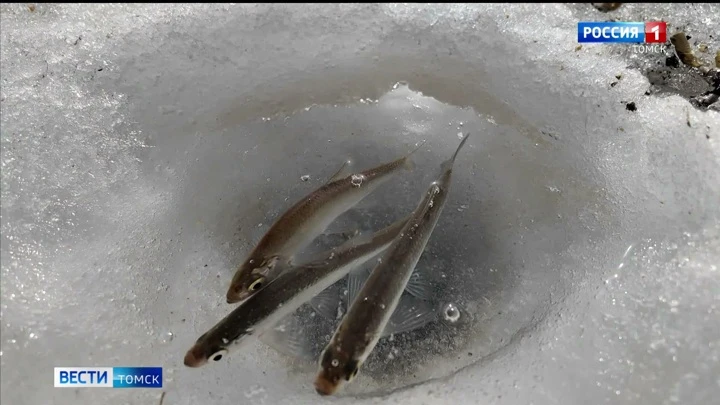In Tomsk learned to create gasoline from coffee cups
In Tomsk Akademgorodok, specialists of the Institute of Oil Chemistry have developed a technology that allows you to convert plastic waste into fuel for cars. Correspondents of the program "Vesti. Tomsk" visited the laboratory and got acquainted with the process.


03.03.2025
Near Tomsk will repair the bridge across Basandaika

26.02.2025
Drive. Tomsk Ether from 26.02.2025 (11:30)

28.02.2025
Tomsk sweet tooth once again caught stealing coffee and chocolate

04.03.2025
Drive. Tomsk Ether from 04.03.2025 (09:30)

20.03.2025
Drive. Tomsk Ether from 20.03.2025 (09:30)

06.03.2025
Drive. Tomsk Ether from 06.03.2025 (11:30)

19.03.2025
Drive. Tomsk Ether from 19.03.2025 (21:10)

26.02.2025
Jeff Monson received a thank you from the administration of Tomsk

03.03.2025
Missing student in Tomsk found in the library of the University

07.03.2025
The first woman with SVO came to Tomsk

03.03.2025
Near Tomsk will repair the bridge across Basandaika

26.02.2025
Drive. Tomsk Ether from 26.02.2025 (11:30)

28.02.2025
Tomsk sweet tooth once again caught stealing coffee and chocolate

04.03.2025
Drive. Tomsk Ether from 04.03.2025 (09:30)

20.03.2025
Drive. Tomsk Ether from 20.03.2025 (09:30)

06.03.2025
Drive. Tomsk Ether from 06.03.2025 (11:30)

19.03.2025
Drive. Tomsk Ether from 19.03.2025 (21:10)

26.02.2025
Jeff Monson received a thank you from the administration of Tomsk

03.03.2025
Missing student in Tomsk found in the library of the University

07.03.2025
The first woman with SVO came to Tomsk
📝 Summary
Tomsk scientists have made a breakthrough in the field of fuel production, having learned to produce gasoline from available materials, for example, from coffee cups or food containers. This discovery could be a solution to the problem of dependence on oil reserves and help cope with rising gasoline prices. “The plastic waste is heated in a reactor to 470°C and held for five minutes, then cooled. This method allows you to obtain gasoline from plastic, demonstrates the process of innovative development senior researcher at the Institute of Petroleum Chemistry Nikita Sviridenko. Despite the success in getting liquid fuel from plastic waste, there is a problem with its quality. The resulting mixture is similar to a mixture of diesel and gasoline and may contain unwanted elements such as nitrogen, sulfur, bromine and chlorine, which can damage the engine. “Heteroatoms in fuels can corrosion equipment and harm the environment. The exception to food plastics, which rarely contain such elements, is PVC, says junior researcher at the Institute of Petroleum Chemistry Hoshim Urazov. The process of processing plastic into fuel has limitations. For example, heating and melting PVC tile is dangerous to health. However, with the right choice of raw materials, the development of Tomsk scientists can be very useful. “In some regions, new recycling technology could simplify waste management and fuel production. The resulting liquid product does not contain sulfur and nitrogen, which allows it to be used to dilute oil fractions and simplify the processing process at oil refineries. Nikita Sviridenko, Senior Researcher at the Institute of Petroleum Chemistry The final stage of the technology is hydroprocessing using catalysts based on nickel and molybdenum of Russian production. After that, plastic gasoline can be used in cars.
📌 Tags:
 Подписаться на NX Россия
Подписаться на NX Россия
🔗 Share
Новые видео
- Drive. Vologda region Historical event: Arkhangelsk bridge inaugurated in Cherepovets 31.03.2025
- Drive. Experts have calculated the damage from the mass death of fish in the river Losta and Nadeevsky reservoir 31.03.2025
- Drive. Archaeologists continue excavations of an ancient necropolis in the center of Vologda 31.03.2025
- Drive. Production know-how: disposable chopsticks for food began to be produced in Veliky Ustyug 31.03.2025
- Drive. The shelter for dogs “Zooshield” in Cherepovets was on the verge of survival 31.03.2025
- Drive. In honor of the Day of Archaeologist Khabarovsk residents showed the “secret” laboratory and collection of Arsenyev 31.03.2025
- Drive. Vologda region Beat records: the largest mat in Russia was prepared in Cherepovets 31.03.2025
- Drive. Vologda region Air inspector: the first results of patrolling Cherepovets roads quadcopter 31.03.2025
- Drive. Vologda region With love for people: the festival of village cinema "Pechka" was held in the village of Shelota 31.03.2025
- Drive. Vologda region PhosAgro Summer scientific school unites participants of natural science Olympiads from Cherepovets 31.03.2025
- Drive. Vologda region Nikolchanin with his own hands decorates his native village with copies of famous sights 31.03.2025
- Drive. The long-awaited event: the village Gorodishche opened a passenger bus flight 31.03.2025
- Drive. Vologda region “Severstal” will take part in the construction of a nuclear icebreaker 31.03.2025
- Drive. A new line of gas equipment began to produce at the Cherepovets enterprise 31.03.2025
- Drive. Record harvest volumes managed to prepare farmers of Vologda district 31.03.2025
Ähnliche Archiv-News
- Near Tomsk will repair the bridge across Basandaika 03.03.2025
- Drive. Tomsk Ether from 26.02.2025 (11:30) 26.02.2025
- Tomsk sweet tooth once again caught stealing coffee and chocolate 28.02.2025
- Drive. Tomsk Ether from 04.03.2025 (09:30) 04.03.2025
- Drive. Tomsk Ether from 20.03.2025 (09:30) 20.03.2025
- Drive. Tomsk Ether from 06.03.2025 (11:30) 06.03.2025
- Drive. Tomsk Ether from 19.03.2025 (21:10) 19.03.2025
- Jeff Monson received a thank you from the administration of Tomsk 26.02.2025
- Missing student in Tomsk found in the library of the University 03.03.2025
- The first woman with SVO came to Tomsk 07.03.2025
- In Tomsk completed the construction of a waste treatment complex 03.03.2025
- Drive. Tomsk Ether from 17.03.2025 (09:30) 17.03.2025
- In the Tomsk region suspended the construction of 35 apartment buildings 10.03.2025
- In Tomsk looking for a contractor to repair a soldier’s synagogue 12.03.2025
- Russia morning. Tomsk Ether from 04.03.2025 04.03.2025